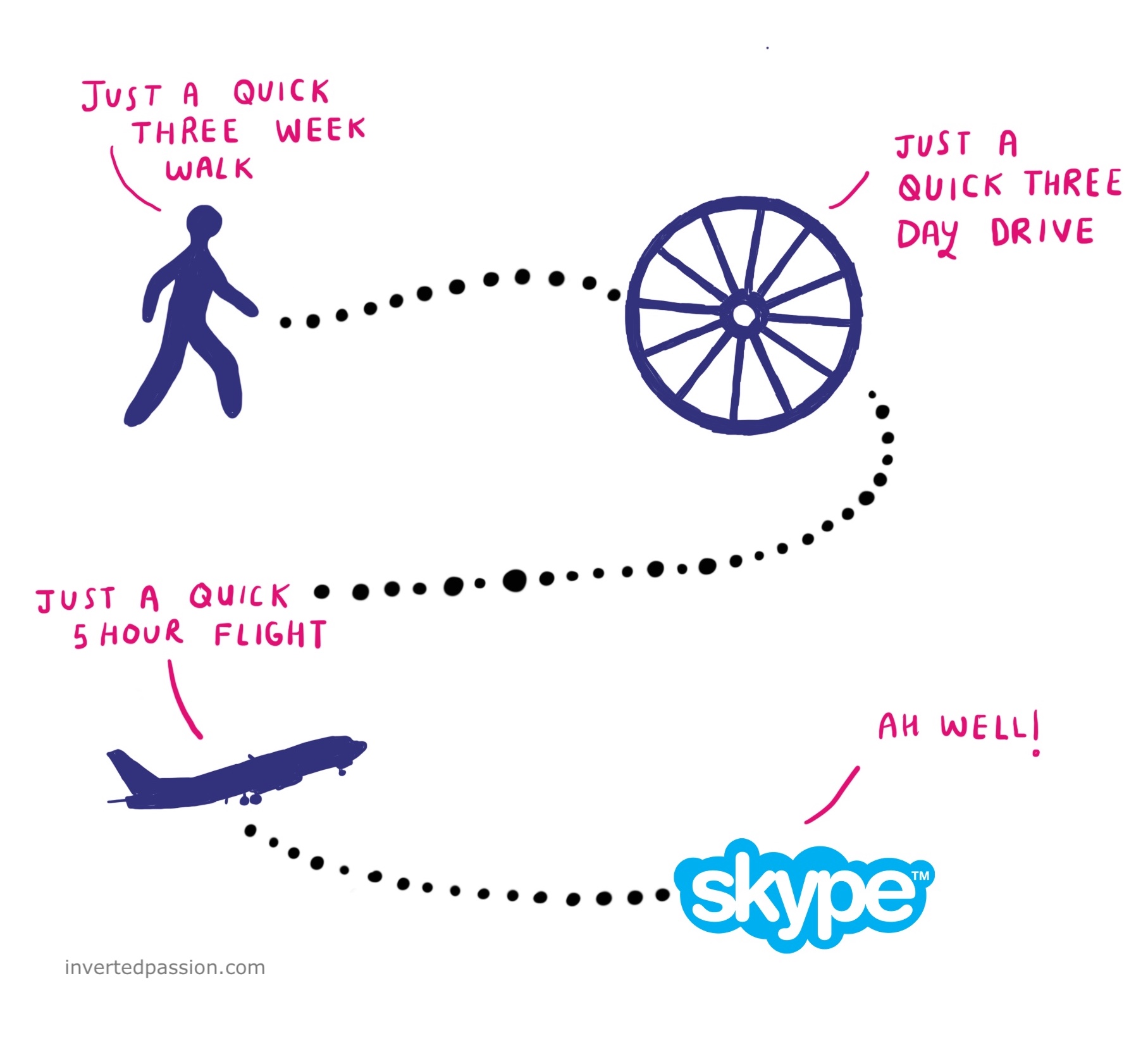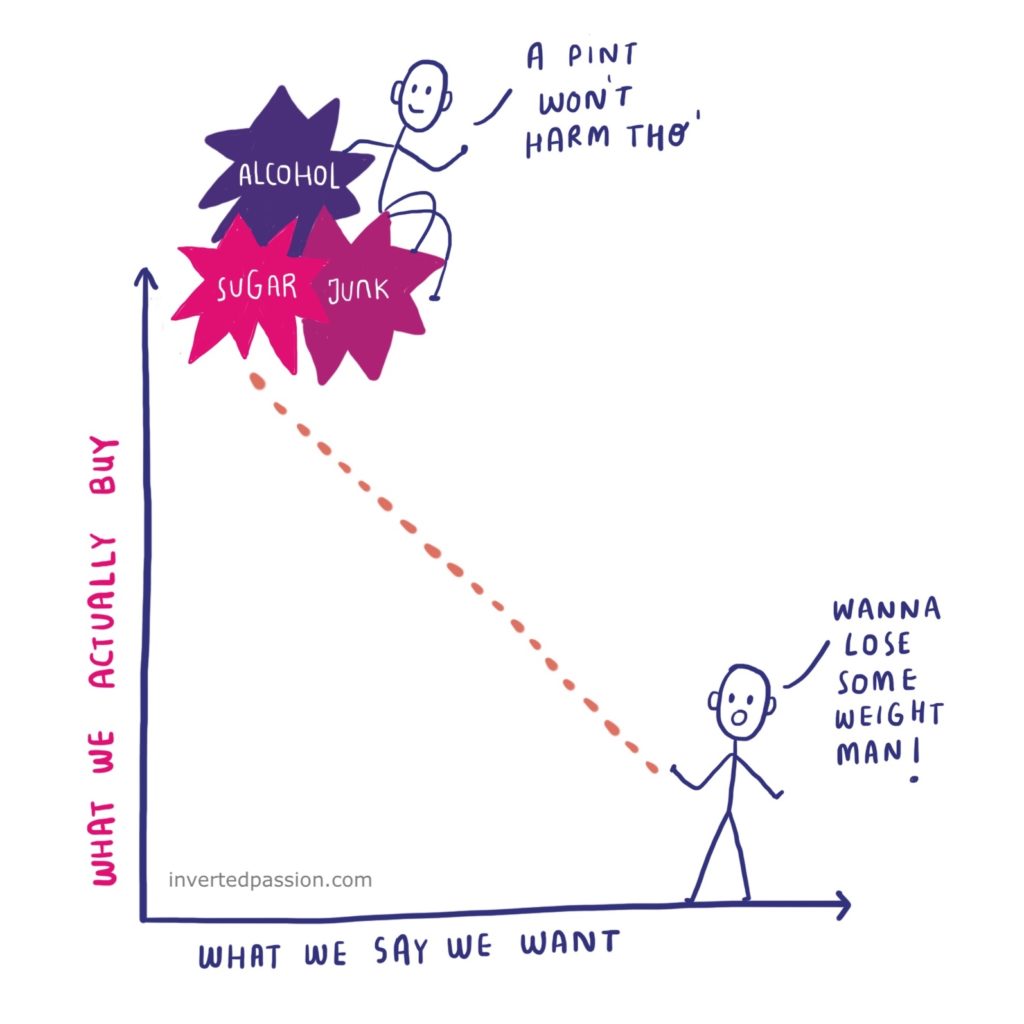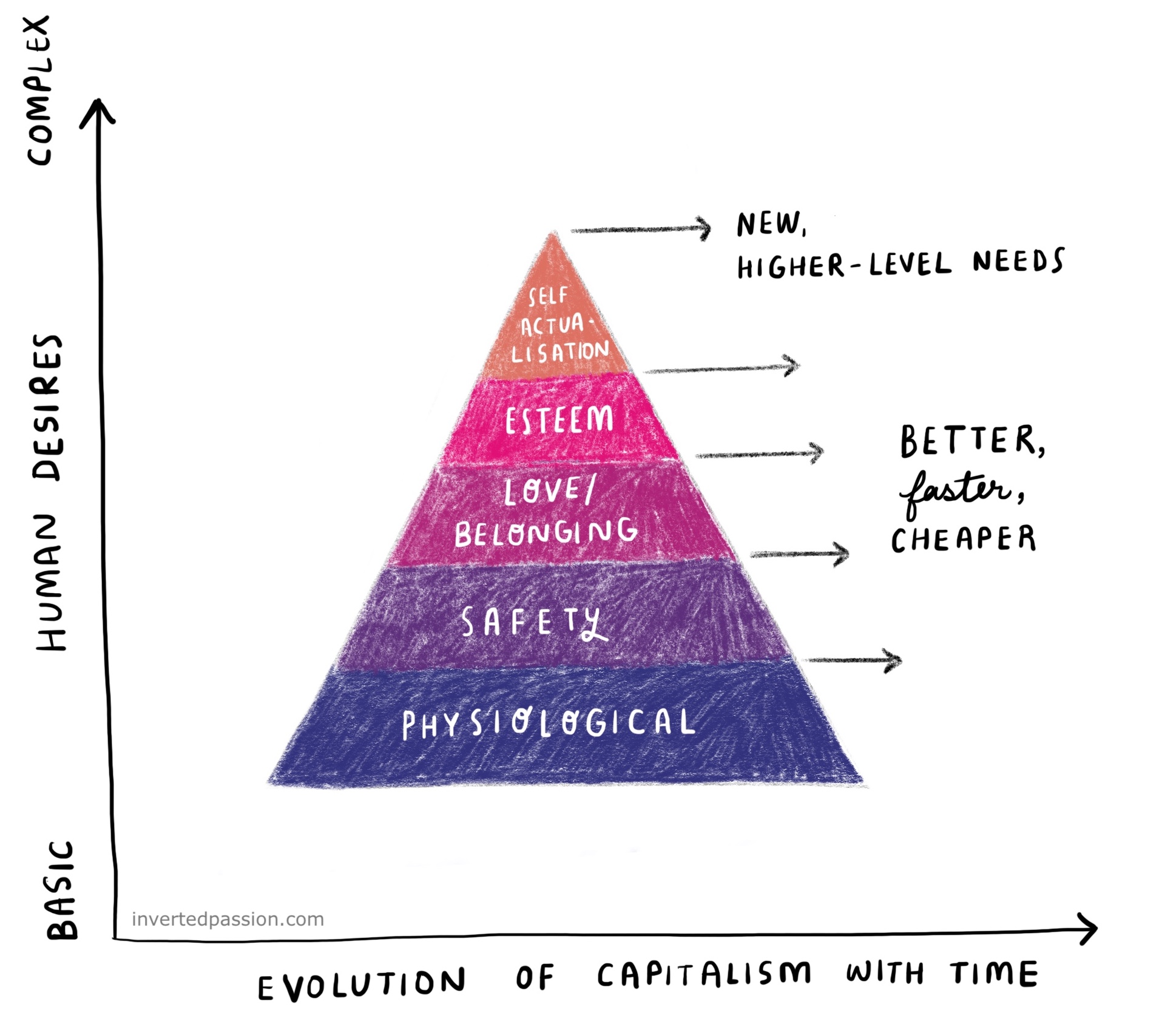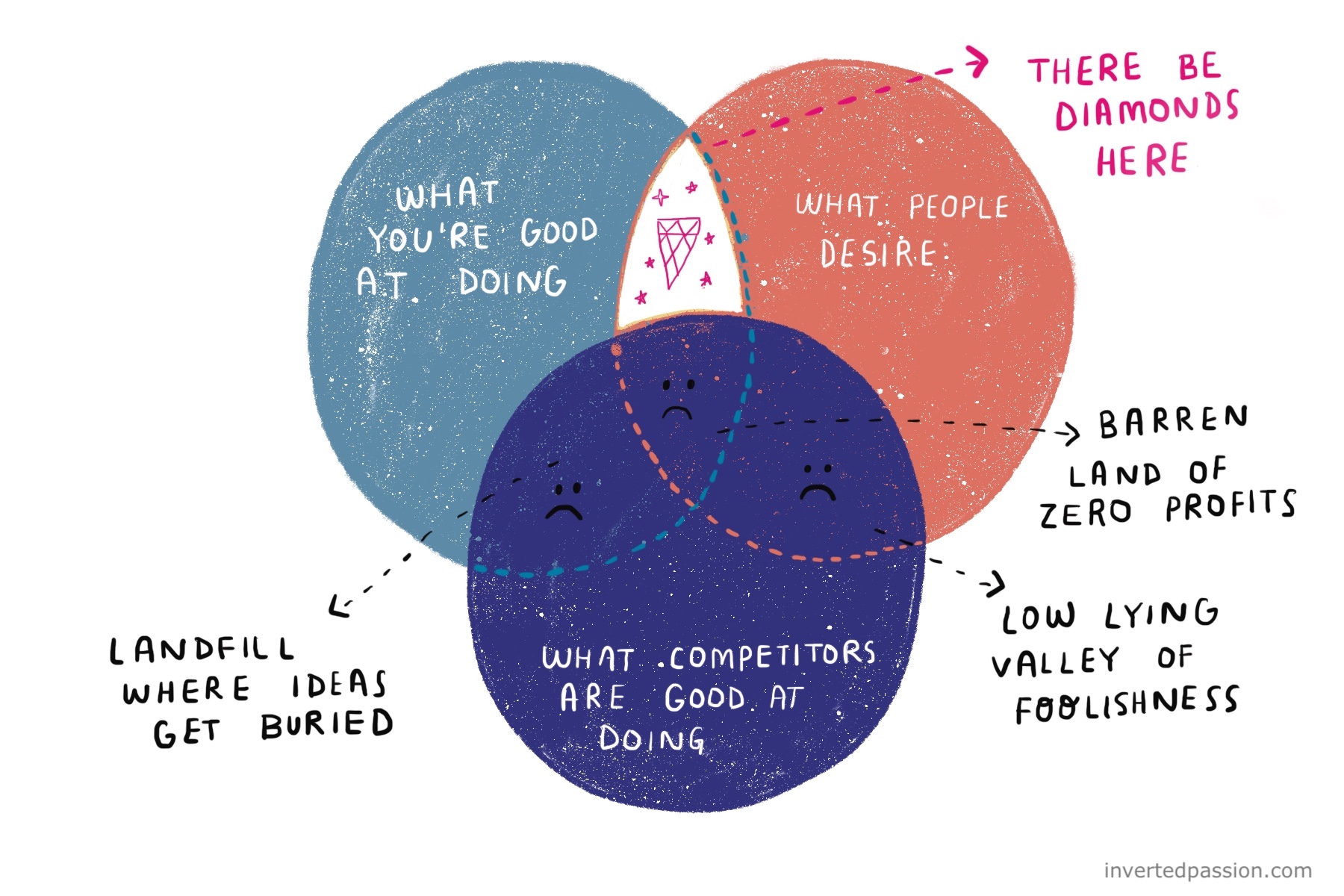It’s near impossible for a product to create a new desire in customers all by itself. No single product creates a market. What usually happens is that multiple environmental, political, economic, social, and technological factors come together to delicately and gradually shape what customers desire, which then creates an opening for new products to address such evolved expectations.
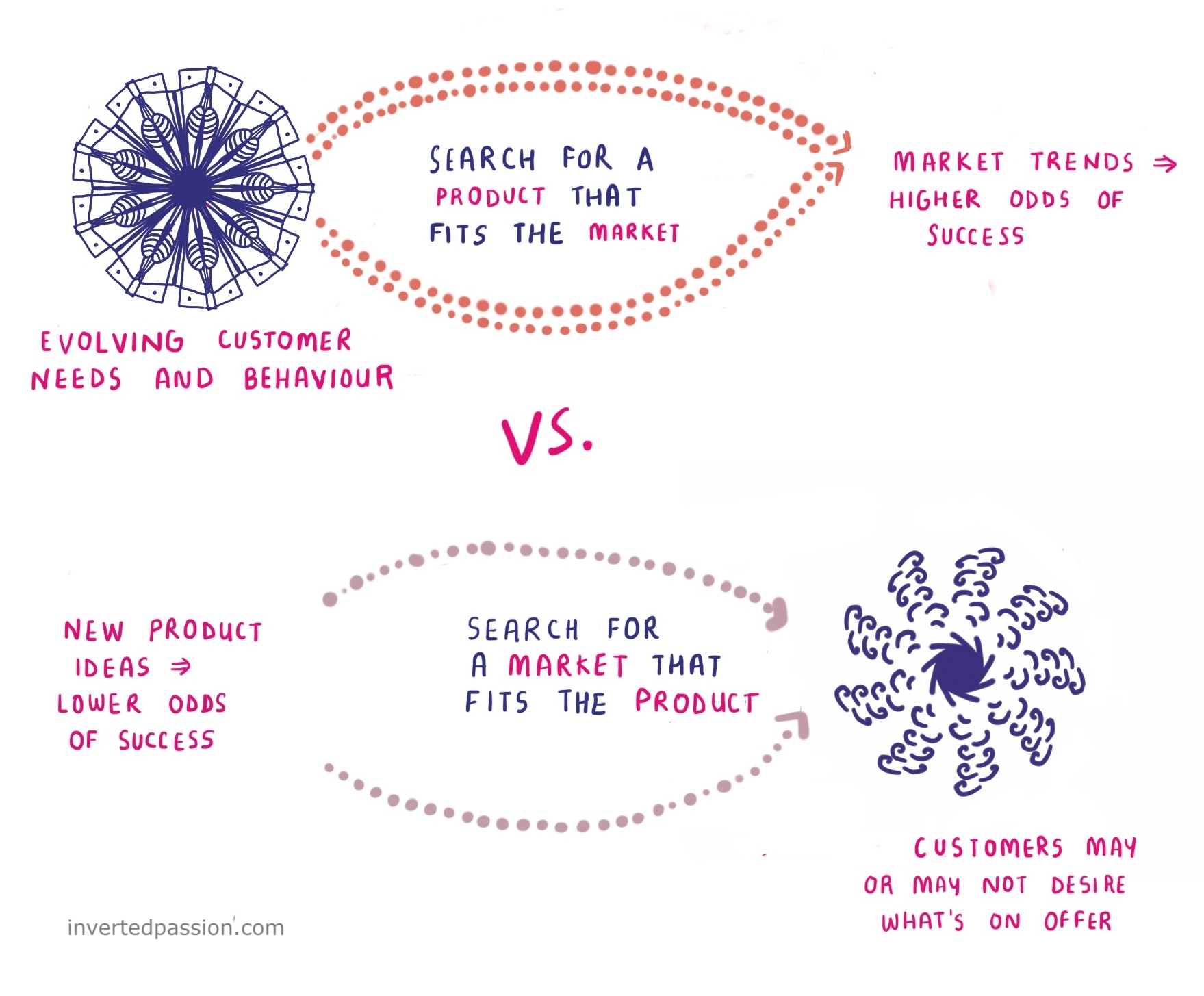
The million dollar question is: how do you discover these evolving trends?
The best way to discover these unambiguous market trends is to look for instances where customers are innovating by themselves by modifying or re-imagining existing products. ...
